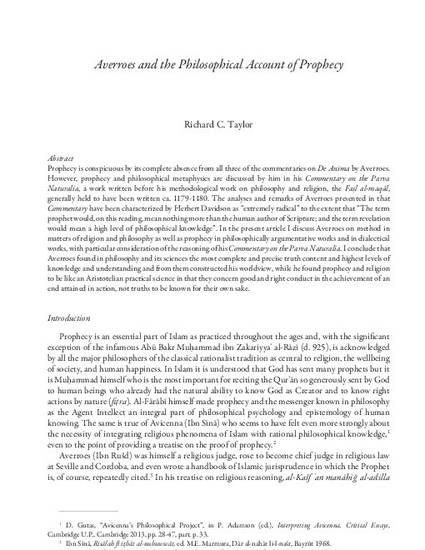
Prophecy is conspicuous by its complete absence from all three of the commentaries on De Anima by Averroes. However, prophecy and philosophical metaphysics are discussed by him in his Commentary on the Parva Naturalia, a work written before his methodological work on philosophy and religion, the Faṣl al-maqāl, generally held to have been written ca. 1179-1180. The analyses and remarks of Averroes presented in that Commentary have been characterized by Herbert Davidson as “extremely radical” to the extent that “The term prophet would, on this reading, mean nothing more than the human author of Scripture; and the term revelation would mean a high level of philosophical knowledge”. In the present article I discuss Averroes on method in matters of religion and philosophy as well as prophecy in philosophically argumentative works and in dialectical works, with particular consideration of the reasoning of his Commentary on the Parva Naturalia. I conclude that Averroes found in philosophy and its sciences the most complete and precise truth content and highest levels of knowledge and understanding and from them constructed his worldview, while he found prophecy and religion to be like an Aristotelian practical science in that they concern good and right conduct in the achievement of an end attained in action, not truths to be known for their own sake.
Available at: http://works.bepress.com/richard-taylor1/8/

Published version. Studia Graeco-Arabica, Vol 8 (2018): 287-304. Publisher link. © 2018 Pacini Editore. Used with permission.